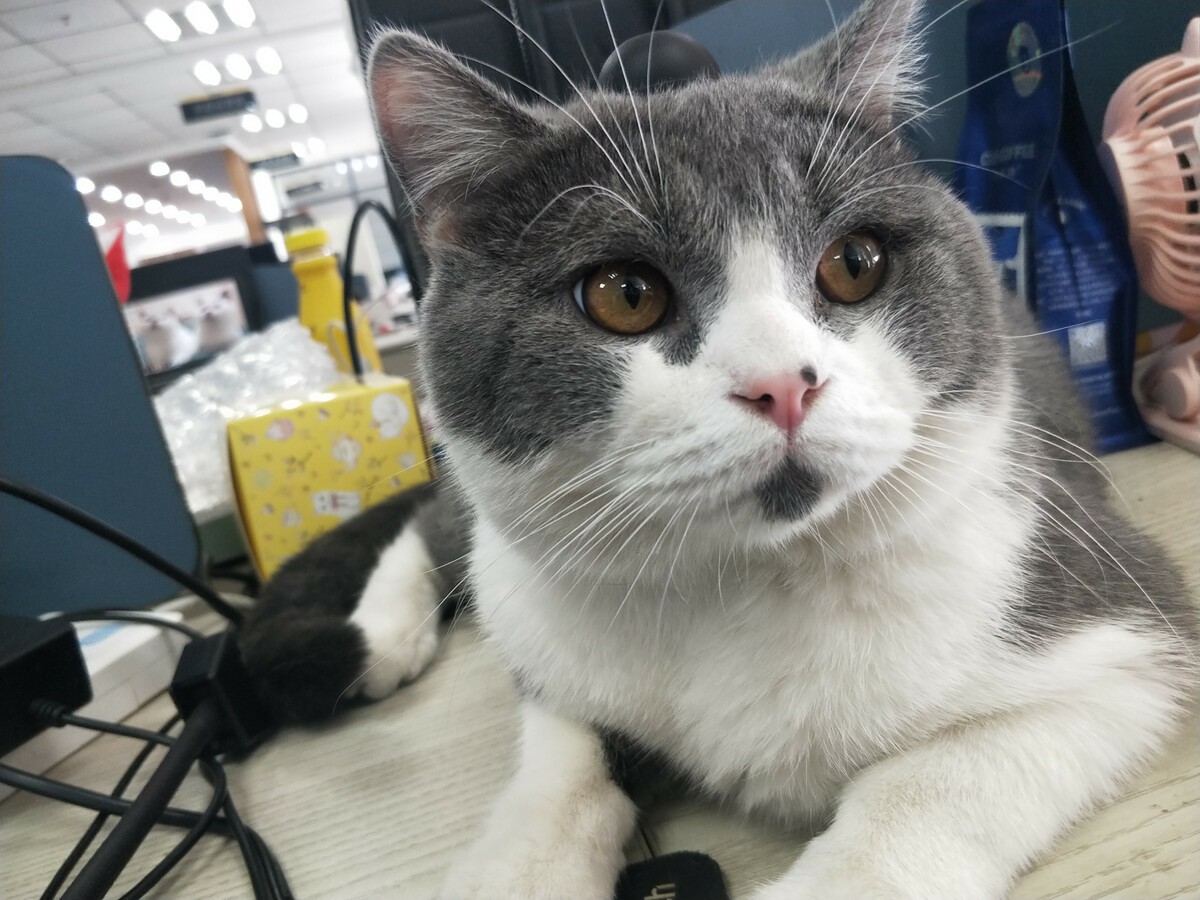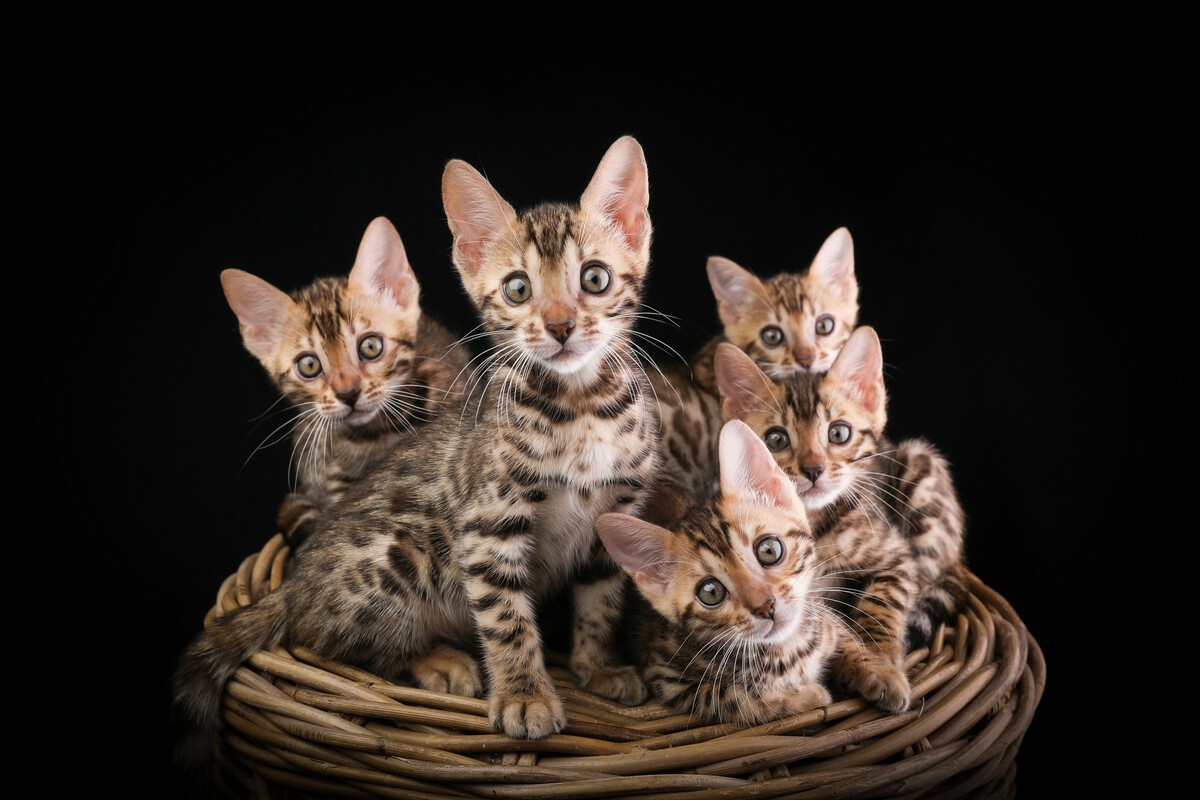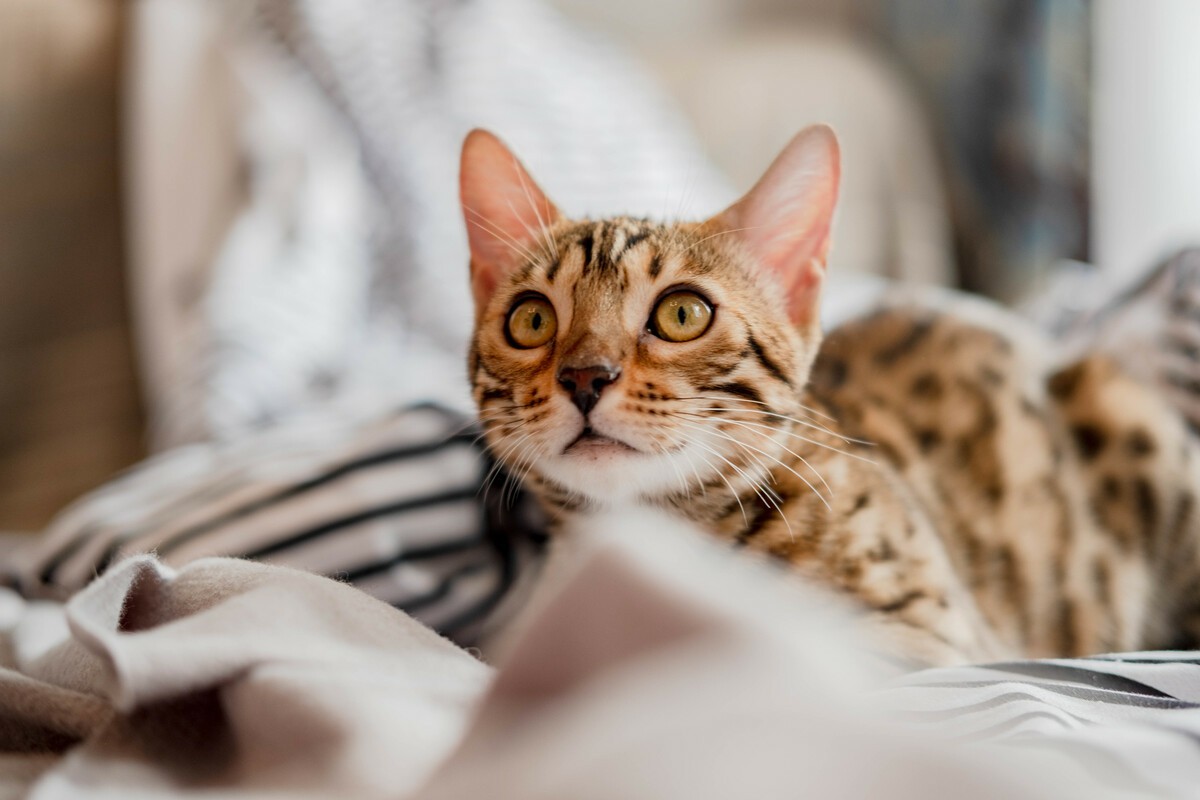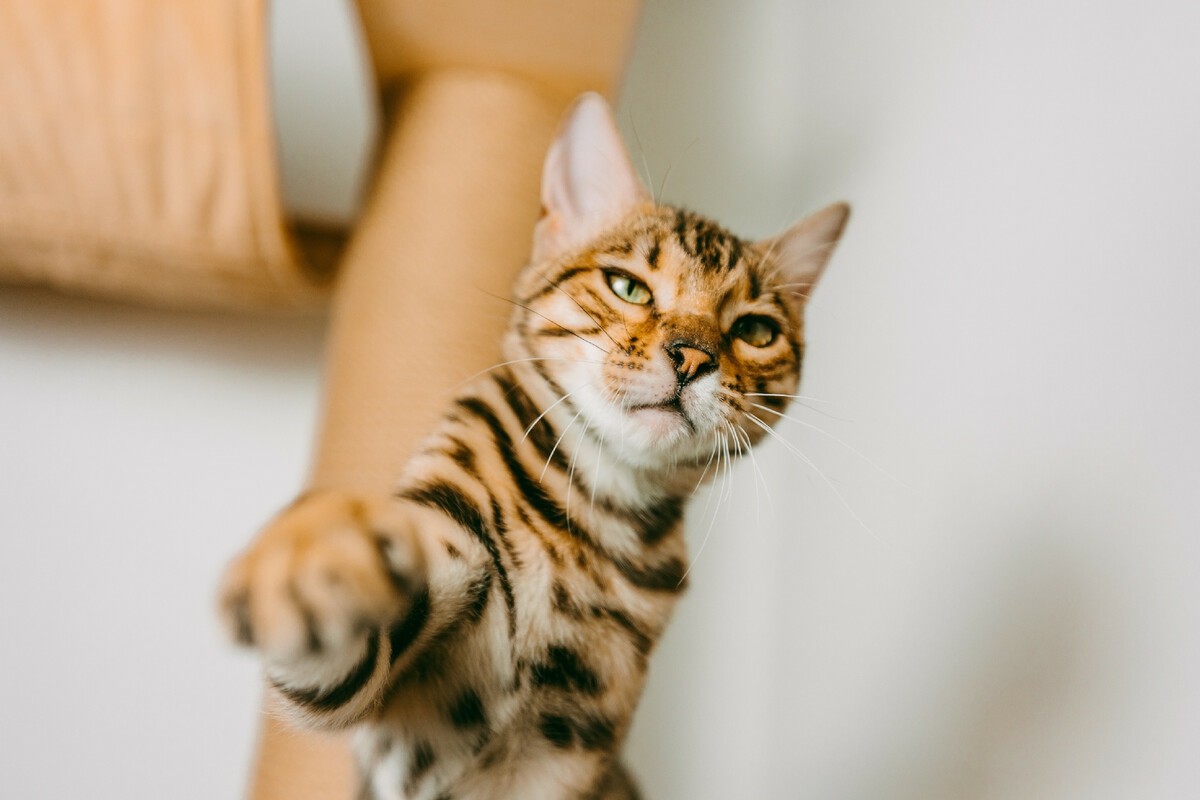Has your British Shorthair seemingly randomly started running around your house, chasing or attacking you, or simply displayed restlessness? These are all signs of a hyperactive cat.
So, if your British Shorthair is hyperactive and disrupting the peace in your home at random times, how can you calm them down? The answer lies in first understanding the reason why your British Shorthair is acting hyper. The second is to spend more time with them and ensuring that they burn up all of their pent up energy.
However, oftentimes it really is different strokes for different folks when it comes to calming your British Shorthair. Hence, before I tell you the different ways you can subdue your shorthair, let us understand more about these beautiful, graceful cats.
Are British Shorthairs Generally Hyperactive Cats?
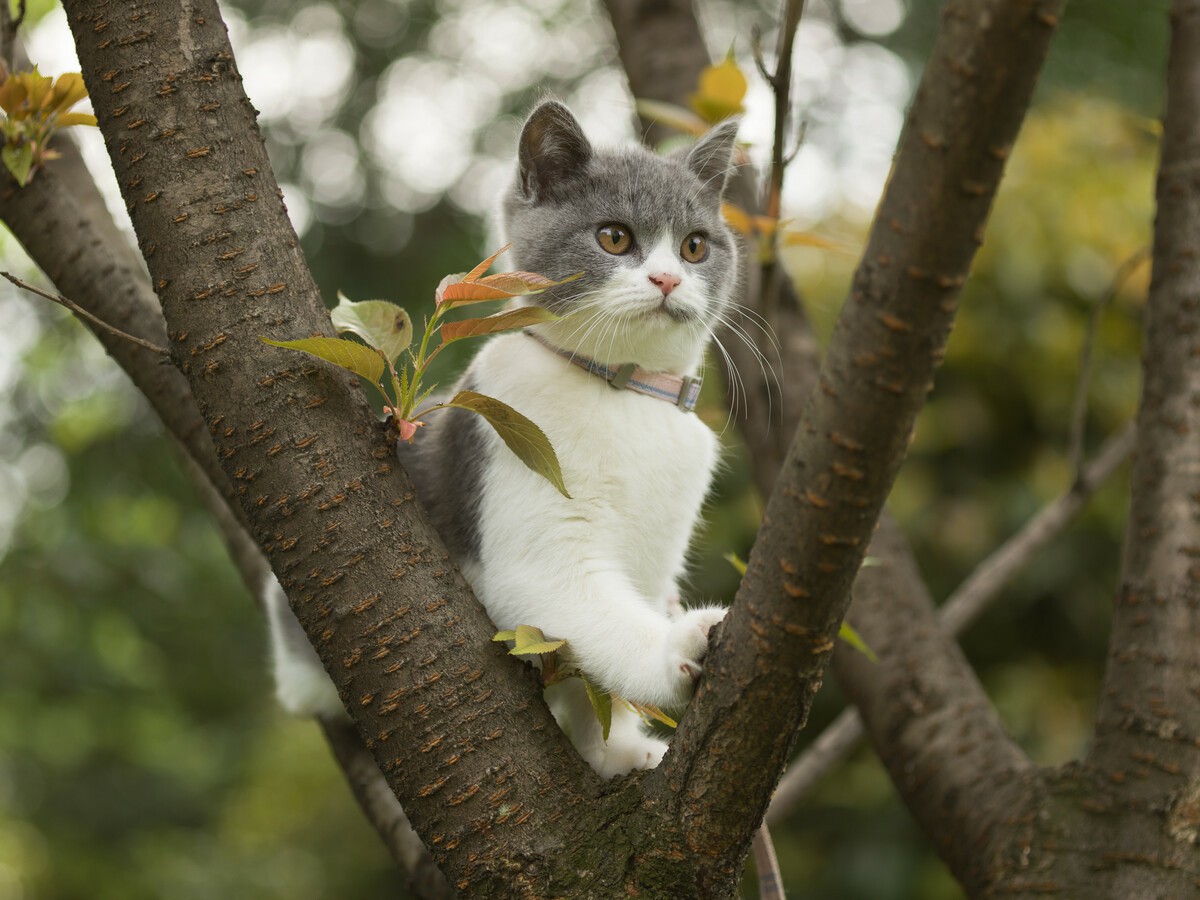
British Shorthairs are known for having very calm and quiet demeanors. They are typically not hyperactive, even with those that they are comfortable with.
For instance, British Shorthairs are generally reserved around strangers. So, do not be surprised if your affectionate and friendly British Shorthair acts coy around strangers. Hence, it is highly unlikely that your British Shorthair will act hyperactive around strangers.
However, if your British Shorthair is hyperactive around you or other people that your shorthair is familiar with, then there is probably a reason for this.
Why Is Your British Shorthair Getting Hyper?
There are different factors that can provoke your British Shorthair to get hyperactive. This hyperactive behavior usually includes them running around the house, meowing for prolonged periods, darting about the room, and chasing random things including you! So, let us look at some of the reasons why your shorthair may be displaying this type of behavior.
1.Age
The first and most obvious reason for your British Shorthair’s hyperactivity could be their age. It is common knowledge that younger animals are more likely to be hyperactive. Hence, if your shorthair is not a kitten anymore, i.e. they are over 6 months old, then you will definitely want to keep reading to find out how to calm your British Shorthair!
However, hyperactivity in older cats is also a possibility due to the two reasons listed below.
a. Feline Hyperesthesia Syndrome (FHS)
FHS is a major reason why your British Shorthair might be getting hyperactive. This syndrome is also more prevalent in mature cats. Some of the telling signs of FHS are that the skin on your shorthair’s back seems to ripple whenever he or she is running, petting your shorthair’s back causes them to scratch or bite the petted area aggressively and start running, etc.
Hence, if any of the aforementioned signs of FHS appear, then you should consult with a reputable veterinarian as soon as possible!
b. Senility
As your British Shorthair ages, they may start displaying senility, which could cause them to also display odd behaviors. And as you may have guessed by now, this odd behavior could possibly include being over-active.
2.Predatory Instincts
Your British Shorthair’s natural predatory instincts could also be another reason for its hyperactivity. Although this may not be apparent at first, their hyperactive behaviors could actually be them simply exhibiting their instincts to hunt, fight, or escape.
3.Boredom or Loneliness
Boredom and loneliness are usually the cause of hyperactive behavior in your British Shorthair too. For instance, if you leave them at home all day without any toys then they will get bored or feel lonely, which will, in turn, provoke them to start getting hyperactive in order to burn up their pent-up energy.
Hence, the solution here is to leave them at home with plenty of cat toys, especially ones that will keep them mentally stimulated too since British Shorthairs love to be mentally occupied too! Such toys include DIY Catnip toys, laser pointers, food puzzles, cat charmers, crinkle balls, or even a ball of yarn!
4.Fleas
Sometimes hyperactivity in your British Shorthair could be because it has flea bites or an itch that it cannot scratch. Hence, if you have ruled out age, predatory instincts, and boredom as the causes for your shorthair’s hyperactivity and your shorthair is meowing a lot more often, then it could have fleas.
However, to confirm that this is the case, you will want to consult with your veterinarian and take the necessary measures to rid your shorthair of fleas and your house too!
Tips to Calm Your Hyperactive British Shorthair
Every cat is different from the next. However, as British Shorthairs are a generally intelligent and calm cat breed, here are some tips you can use to calm your British Shorthair that much quicker.
1.Understanding Your British Shorthair’s Behavior
The most important tips for calming your hyperactive British Shorthair is to understand their behavior. Why are they behaving this way? What is triggering them to behave this way?
Experts say that every vocalization or gesture that your cat makes means something. So, the simplest way of understanding your British Shorthair is to observe them and take mental notes. Did your shorthair meow when s/he entered a particular room? When you presented your shorthair with a particular toy, did s/he run away?
Hence, by answering such questions, you will slowly get to know your British Shorthair and understand their behavior better. This will then help you to understand what might be causing them to get hyperactive.
2.Console Your British Shorthair But Do Not Go Overboard
The best way to approach your British Shorthair when they seem to be upset or overactive is to think like them. Because humans often think like humans and think that giving their cat a hug will make it better, an upset cat might not think the same way. In fact, cats usually take hours to calm down completely if they are exhibiting extreme hyperactivity.
Hence, remember that just being there physically is enough for your British Shorthair since they are affectionate. If it were a different, less affectionate cat breed, then they may not have even wanted to be around you!
3.Keep Your British Shorthair’s Essentials Easily Accessible For Them
Remember that your British Shorthair is a neat freak. They like to be clean and have their designated areas for relieving themselves, eating, and sleeping. Hence, when you are observing them note how they respond to certain areas of the house, make sure to place their litter box, food bowl, and a cat bed in THEIR ideal spots. Here are the best-recommended supplies for your British Shorthair.
This will ensure that they are content with how their basic needs are being fulfilled and also reduce the chances of them getting agitated and hyperactive.
4.Let Your British Shorthair Carry Their Scent
Sometimes when you take your British Shorthair to a place that they are unfamiliar with, you may have seen them get restless. Here, it may help to take an item with you, which your shorthair uses regularly, and which is sure to hold some of your shorthair’s own scent. This will ensure that your shorthair is still able to smell their own scent from that item and not feel overwhelmed about being in a brand new place.
5 Ways To Calm Down Your Hyperactive British Shorthair
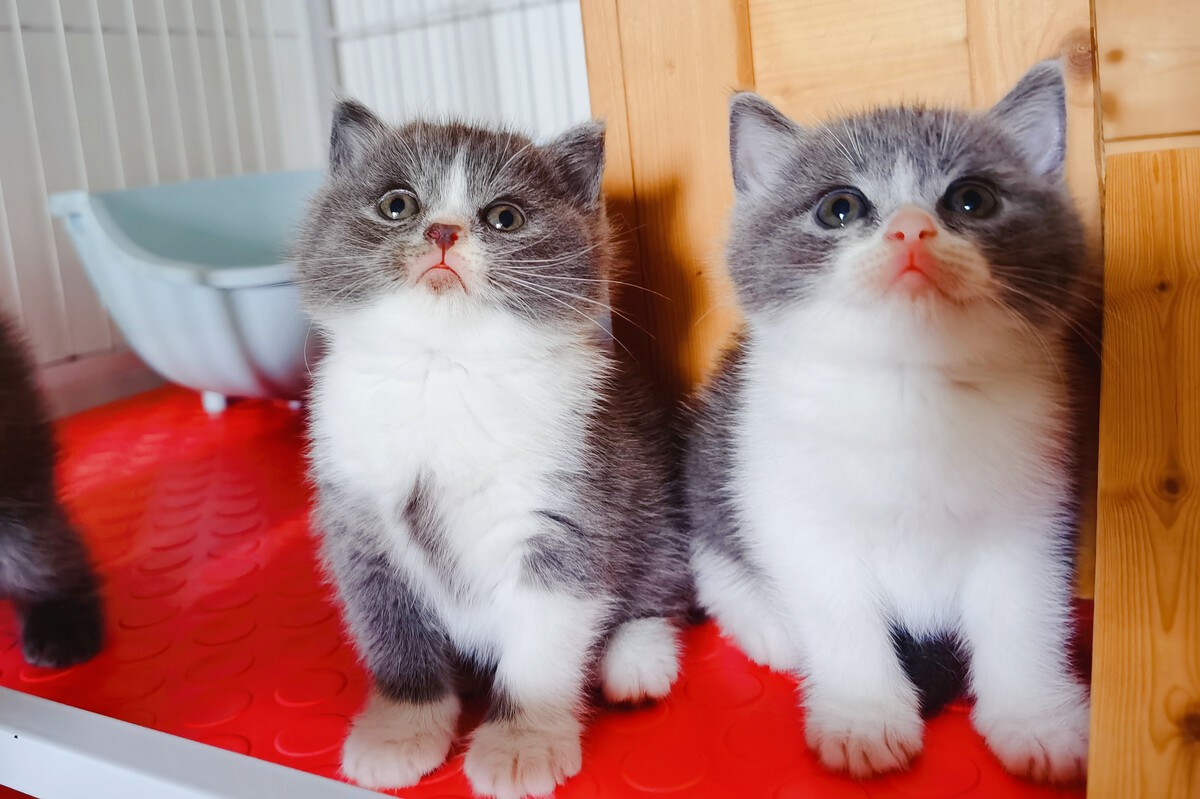
Now let us move on to five essential ways of calming down your British Shorthair.
1.Ensure That Your British Shorthair Is Getting Enough Exercise
The first and most obvious way of ensuring that your British Shorthair remains calm is to make sure that it gets enough exercise. The root of hyperactivity in a cat is usually because they have pent up energy. Hence, if you are able to play with them for at least 20-30 minutes each day, this will be enough to expend their store of energy for the day.
2.Provide Harmony In Your Household!
If you plan to add more pets to your home alongside your British Shorthair, then you need to know what you are taking on before you get on with this step. For instance, it is highly likely for your British Shorthair’s personality to change if they are kept with other pets for too long. Urinating in inappropriate places to mark their territory is one clear sign of hostility.
Hence, you will have to consult with your veterinarian to ensure that harmony ensues in your household if you decide to have more than just your British Shorthair as a house pet. And with harmony in place, your British Shorthair will be able to enjoy its surroundings and not become hyperactive at random moments.
3.Try Anti-Anxiety Treats
This is a straightforward and simple solution to calming your British Shorthair down. If all else fails then, you can always opt to give them anti-anxiety treats that have calming effects. However, there are many such treats in the market with harmful side effects. So, make sure to confirm with your veterinarian before you invest in any such treats!
4.Check for Any Hyperthyroid Problems
In older cats, Hyperthyroidism is a common issue, which causes them to have an overactive thyroid gland. And since this thyroid gland is the control mechanism for their energy levels, cats with Hyperthyroidism, can display erratic behavior. Hence, it is best to consult with your veterinarian to confirm what the issue is first.
Then, you can move on to treatments for Hyperthyroidism to reduce the chances of random outbursts of energy.
5.Allow the Behavior
If you British Shorthair displays random hyperactivity for short periods, then you do not need to take action right away. However, if they act like this regularly or their energy outbursts lead them to harm themselves or anyone else, then action must be taken right away!
Again, actions taken to calm your British Shorthair begin by employing some of the tips suggested above.
Final Words
In conclusion, you need to keep in mind that British Shorthairs need mental stimulation and physical exercise. It is only when their energy outbursts negatively affect themselves or others, that you need to start taking action.
Although, remember that harmless hyperactivity can be resolved with some easy tips, as mentioned above. However, laziness in your shorthair will just leave you with a boring cat!

